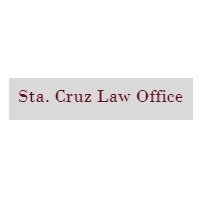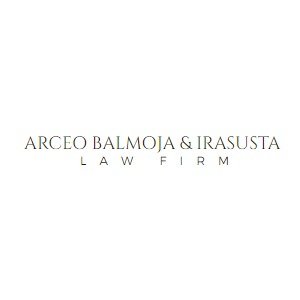Best Sanctions & Export Controls Lawyers in Bulacan
Share your needs with us, get contacted by law firms.
Free. Takes 2 min.
List of the best lawyers in Bulacan, Philippines
About Sanctions & Export Controls Law in Bulacan, Philippines
Sanctions and export controls in Bulacan, Philippines refer to a set of regulations and laws governing the movement of goods, services, technology, and financial assets to and from the province and the country. These laws aim to ensure that exports and imports comply with national security, foreign policy, and international obligations. Sanctions limit or prohibit certain activities with specific countries, organizations, or individuals, while export controls regulate the transfer or sharing of controlled goods, such as sensitive technology, dual-use items, or defense equipment. These rules are relevant for individuals and businesses engaged in cross-border trade or transactions in Bulacan, especially since violations can lead to serious penalties.
Why You May Need a Lawyer
Legal assistance is critical in several situations involving sanctions and export controls in Bulacan. If you are an exporter, importer, freight forwarder, or work in industries like manufacturing, electronics, agriculture, or pharmaceuticals, you might encounter complex regulations regarding what you can send, receive, or sell overseas. Individuals and companies may also need a lawyer if they receive government notices, find themselves under investigation, or face administrative or criminal charges relating to unauthorized exports or dealings with sanctioned parties. Lawyers can help navigate licensing, compliance programs, due diligence, audits, and defense in enforcement actions. If you are uncertain about the status of your goods, or your obligations under the law, seeking legal counsel is a practical step to avoid costly mistakes.
Local Laws Overview
In Bulacan, the enforcement and implementation of sanctions and export controls are governed primarily by national laws and regulations. Key statutes include the Strategic Trade Management Act (Republic Act No. 10697), which establishes controls on the export, import, transit, transshipment, and re-export of strategic goods and related materials. The Customs Modernization and Tariff Act (Republic Act No. 10863) is also important, as it details procedures and prohibitions relevant to the cross-border movement of goods. The Philippine Export Control List, regularly updated by the National Security Council and the Strategic Trade Management Office (STMO), specifies which goods require licenses. Local government units in Bulacan coordinate with national agencies for implementation and can assist in certain administrative processes. Violations can result in administrative penalties, fines, confiscation of goods, and even imprisonment.
Frequently Asked Questions
What are sanctions and export controls?
Sanctions are government-imposed restrictions targeting specific countries, individuals, or entities, limiting or prohibiting trade and transactions. Export controls regulate the transfer or sharing of particular goods, technology, and services to ensure compliance with laws and international agreements.
Which Philippine agencies enforce these laws?
The Strategic Trade Management Office (STMO) under the Department of Trade and Industry is the main agency for export controls, while the Bureau of Customs, and relevant law enforcement bodies, implement customs-related sanctions and controls. Other relevant agencies can be involved depending on the goods or parties involved.
What goods are commonly subject to export controls?
Strategic goods, dual-use items (goods with both civilian and military applications), defense equipment, high technology, chemicals, and certain agricultural products may be subject to export controls. The exact list is maintained by the STMO and updated periodically.
Do Bulacan-based companies need a license to export controlled goods?
Yes, if you are dealing with items listed on the Philippine Export Control List, you must secure the appropriate license. Failure to do so can result in significant liability.
Are there penalties for violating export controls?
Yes. Penalties can include administrative fines, criminal charges, confiscation or forfeiture of goods, and loss of export privileges. Serious violations may lead to imprisonment.
Can individuals be penalized or only companies?
Both individuals and companies can be penalized. Responsible officers, employees, or agents can face liability if found personally involved in violations.
What should I do if I receive a notice of investigation?
If you receive a notice or are contacted by authorities, seek legal advice immediately before responding or providing information. A lawyer can help protect your rights and guide you through the investigation.
How often are export control lists updated?
Lists are updated as needed to reflect new international commitments, technological changes, or emerging risks. It is important to check with the STMO regularly for the latest updates.
Does Bulacan have special local requirements for compliance?
Export controls are implemented at the national level, but local government offices and trade organizations can help with information, documentation, and coordination regarding compliance procedures.
How can a lawyer assist me with sanctions and export controls?
A lawyer can help you understand which regulations apply to your business, assist in securing the proper licenses, design compliance programs, conduct internal audits, and represent you in administrative or legal proceedings.
Additional Resources
- Strategic Trade Management Office (STMO): Main regulator for export controls in the Philippines. - Bureau of Customs - Bulacan District Office: Local customs enforcement and compliance assistance. - Department of Trade and Industry (DTI) Bulacan: Assistance with trade requirements and guidance. - Bulacan Chamber of Commerce and Industry: Support for local businesses regarding trade regulations. - Legal Aid Organizations: Some local legal aid groups offer initial advice or referrals for export control issues.
Next Steps
If you believe you may be affected by sanctions or export controls laws, or if you face a potential legal issue, the recommended steps are:
- Gather all relevant documents and information about your business, transactions, and the goods or services involved. - Contact a reputable lawyer in Bulacan experienced in trade, customs, and export control laws. - Consult with local trade or business organizations for preliminary guidance and networking. - Reach out to the relevant government agencies, such as the STMO or Customs office, for official requirements and procedures. - Follow your lawyer’s advice closely, especially regarding compliance, licensing, or response to investigations.
Taking prompt action and seeking advice early can make a significant difference in resolving issues efficiently and avoiding costly penalties.
Lawzana helps you find the best lawyers and law firms in Bulacan through a curated and pre-screened list of qualified legal professionals. Our platform offers rankings and detailed profiles of attorneys and law firms, allowing you to compare based on practice areas, including Sanctions & Export Controls, experience, and client feedback.
Each profile includes a description of the firm's areas of practice, client reviews, team members and partners, year of establishment, spoken languages, office locations, contact information, social media presence, and any published articles or resources. Most firms on our platform speak English and are experienced in both local and international legal matters.
Get a quote from top-rated law firms in Bulacan, Philippines — quickly, securely, and without unnecessary hassle.
Disclaimer:
The information provided on this page is for general informational purposes only and does not constitute legal advice. While we strive to ensure the accuracy and relevance of the content, legal information may change over time, and interpretations of the law can vary. You should always consult with a qualified legal professional for advice specific to your situation.
We disclaim all liability for actions taken or not taken based on the content of this page. If you believe any information is incorrect or outdated, please contact us, and we will review and update it where appropriate.











